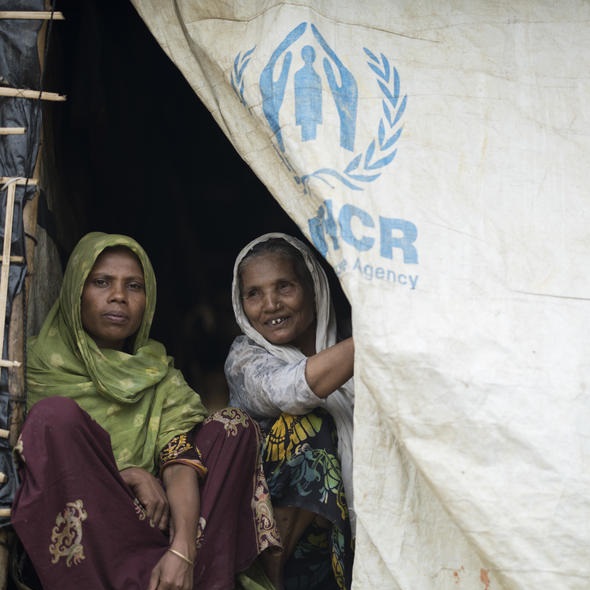Post-Distribution Monitoring of Cash-Based Intervention, April 2021
Tajikistan, 2021
Get MicrodataIdentification
UNHCR_TJK_2021_CBI_PDM
Post-Distribution Monitoring of Cash-Based Intervention, April 2021
| Name | Country code |
|---|---|
| Tajikistan | TJK |
THE CBI PDM Household Survey was conducted in Tajikistan between February, to April, 2021. Tajikistan hosts the largest number of refugees in Central Asia, predominantly from neighbouring Afghanistan. While some progress has been achieved in areas such as access to health and education for refugees, livelihoods and self-reliance, though, continue to pose a challenge. As the result of Covid-19, refugees faced a myriad of challenges, including the loss of daily incomes and livelihoods to cover basic needs such as rent, food and health care. For refugees in Tajikistan, who largely rely on daily work, the impact of Covid 19 has been devastating as it has led to widespread unemployment. As a response measure, UNHCR jointly with its NGO partner provided Covid-19 cash assistance to 414 refugee households over the course of six months (July-December 2020). The results from this survey suggest that cash assistance provided as an immediate measure to support vulnerable refugee households during the Covid-19 pandemic has had a positive impact on the lives of the respondents. Cash assistance predominantly has been spent to cover food, medicines and rent costs.
UNHCR uses Post-Distribution Monitoring (PDM) as a mechanism to collect refugees' feedback on the quality, sufficiency, utilization and effectiveness of the assistance items they receive. The underlying principle behind the process is linked to accountability, as well as a commitment to improve the quality and relevance of support provided, and related services. UNHCR increasingly uses Cash-Based Interventions (CBIs) as a preferred modality for delivering assistance, offering greater dignity and choice to forcibly displaced and stateless persons in line with UNHCR's core protection mandate. In order to ensure that the cash assistance provided meets the intended programme objectives and that desired outcomes are achieved, UNHCR conducts regular post-distribution and outcome monitoring with a sample or all of refugee recipients.
Sample survey data [ssd]
Households
Version
v2.1: Edited, anonymous dataset for licensed distribution.
Scope
The household survey covers the following sections:
- Household demographics
- Receiving and spending the cash assistance (basic facts)
- Risks and problems: Did people face problems with the CBI? Did the CBI put POCs at additional risk?
- Markets and prices: Can POCs find what they need, and at a price they can afford, in the markets?
- Expenditure: What did people spend the money on?
- Outcomes: What changes is the cash assistance contributing to in POC households?
- Longer-Term Outcomes: Has the cash assistance helped put POC on the pathway to sustainable solutions?
- Accountability to Affected Persons: Is the CBI intervention accountable to POC? (What preferences do people have over how assistance is delivered?)
POC = Persons of Concern to UNHCR
| Topic |
|---|
| Livelihood & Social cohesion |
| Cash Assistance |
| Domestic Needs/Household Support |
| Income Generation |
| Solutions |
| Basic Needs |
Coverage
The survey is conducted in Bokhtar, Dushanbe, J. Rasulov, Rudaki and Vahdat.
The sample universe includes all beneficiaries subject to the Cash-Based Intervention.
Producers and sponsors
| Name |
|---|
| UNHCR |
Sampling
The survey's objective was to deliver representative data of all refugee households that were beneficiaries of Cash-Based Interventions implemented in 2021 as a response to Covid-19. The total number of households that received Cash-Based Interventions in 2021 was 419 households. For this survey, a simple random sample design was applied. The total sample size was 90 refugee households.
Sample weights were calculated for each household as the total number of beneficiaries divided by the total sample size.
Data collection
| Start | End |
|---|---|
| 2021-02-25 | 2021-04-02 |
| Name |
|---|
| UNHCR |
The data collection has been carried out during the Covid-19 pandemic, under the impact of restrictive measures and no Face-to-Face interviews were feasible. During the data collection, there were difficulties to locate some of the sampled households, because many refugees have lost access to the telephone and virtual communication, or even have had the need to change their residence due to the implications of Covid 19.
Data Access
| Name | Affiliation | |
|---|---|---|
| Curation Team | UNHCR | microdata@unhcr.org |
UNHCR (2021). Tajikistan: Post-Distribution Monitoring of Cash-Based Intervention, April 2021. Accessed from: https://microdata.unhcr.org.
Metadata production
| Name |
|---|
| UNHCR |
2021
Metadata version
v1.0
